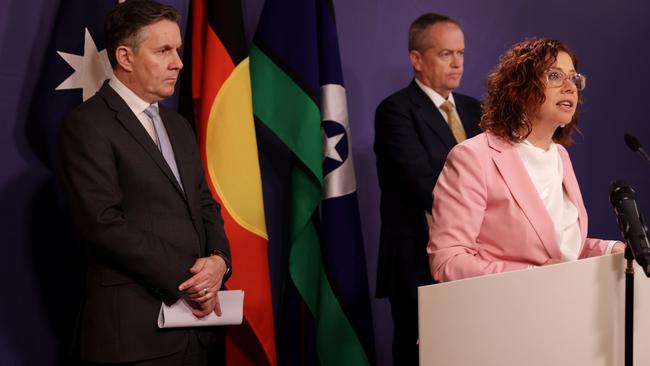Differences remain among governments’ approach to disability royal commission recommendations
The states, territories and the Albanese government have failed to agree on how best to approach some of the disability royal commission’s key recommendations.

The states, territories and the Albanese government have failed to agree on how best to approach some of the disability royal commission’s key recommendations, including banning non-therapeutic sterilisation and the creation of a new national disability agreement.
The phasing out of segregated schools also remained up in the air, and in the hands of state and territory governments, with the commission itself divided on the issue.
It comes after Social Services Minister Amanda Rishworth on Wednesday detailed the government’s initial response to the 222 recommendations from the four-year-long royal commission into violence, abuse, neglect and exploitation of people with a disability, calling the process a “key moment” in Australia’s history, which “confronted shocking and appalling experiences of abuse”.
Of the 222 recommendations, the federal government has primary or shared responsibility with the states in 172, while the remaining 50 are specific to some of the state and territory administrations.
Although there was broad agreement across the full recommendations, and a pledge to work together, governments differed on how best to approach key issues.
The ACT and WA governments “agreed in principle” to banning non-therapeutic sterilisation, an alternative position to the federal government, and the remaining states and territories, which said it would only consider the move.
Ms Rishworth on Wednesday said there was still a “lot of work” before the creation of a new agreement, but disputed that the federal government was kicking it down the road.
“I don’t want to see a delay in the reform process that is underway,” she said.
Only the WA government agreed in full to provide courts and legal practitioners information about changes to services for people with disability, something each other government only accepted in principle.
The Commonwealth and Victoria were the only two governments to agree, although only in principle, to amend the legislative definition of family and domestic violence to make it disability inclusive.






To join the conversation, please log in. Don't have an account? Register
Join the conversation, you are commenting as Logout